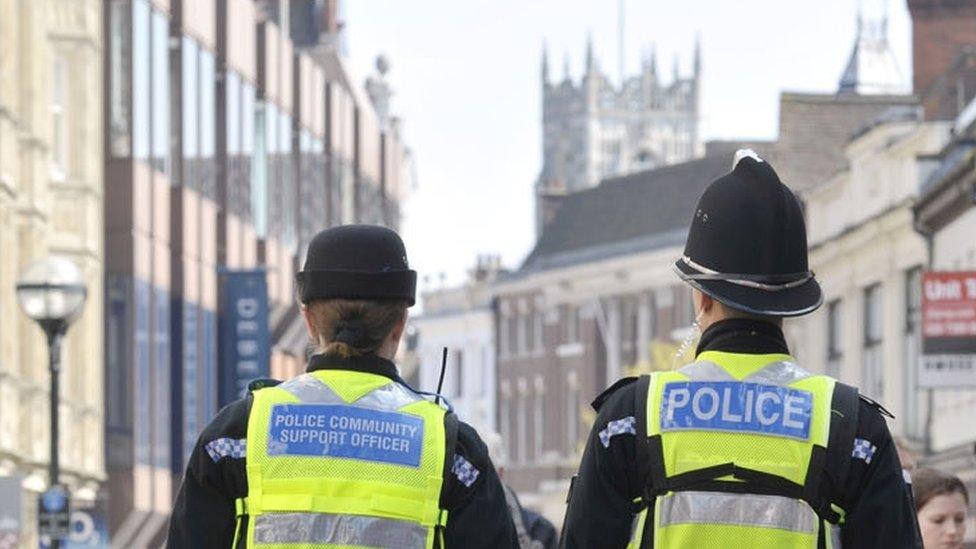Suffolk Police to scale back on mental health response
- Published

Suffolk Police said it had "literally thousands and thousands of calls every year" that "probably shouldn't require a police officer to attend"
Suffolk Police is to scale back its response to mental health calls after similar action was taken by London's Metropolitan Police.
It comes amid concerns that police forces have become the default agency for those with mental health issues.
Partner organisations have been told of the force's plans to use the Home Office Right Care Right Person strategy, external.
The force said other organisations must make plans to cover the gaps.
Assistant Chief Constable Eamonn Bridger said Suffolk Police had "literally thousands and thousands of calls every year" that had links to either mental health or other professional services which "probably shouldn't require a police officer to attend".
"We see many examples where our officers do attend," he said, "and provide a service for many hours... where overall we don't have the skills, experience [or] training and we don't have the right accommodation for those people at that time of need.
"A police cell is not the best place for someone who needs medical or mental health support."
Extra pressures
He said the constabulary wanted to "concentrate on crime and keeping people safe" but, because of the work it had ended up doing with those in need, it had "not been able to concentrate on the things that the public really expect us to in the way that we want to".
He added it was "important to note that we are many months away from implementing anything different".
"We are actively working with all of those partners to work out what the gaps are in the system in Suffolk and look at things can actually provide the services that are needed," he said.
"Ultimately we do need to do things differently."
Anthony Douglas, the independent chairman of the Suffolk Safeguarding Partnership, said mental health was a "multi-agency issue".
While "everybody wants the police to solve crimes", he said, "there aren't enough mental health specialists around to cover this so it's not going to be easy".
He said he thought the Suffolk strategy was good because it was looking at a "phased implementation" adding he felt it was important the force did not "go ahead unilaterally".

Follow East of England news on Facebook, external, Instagram, external and Twitter, external. Got a story? Email eastofenglandnews@bbc.co.uk, external or WhatsApp us on 0800 169 1830